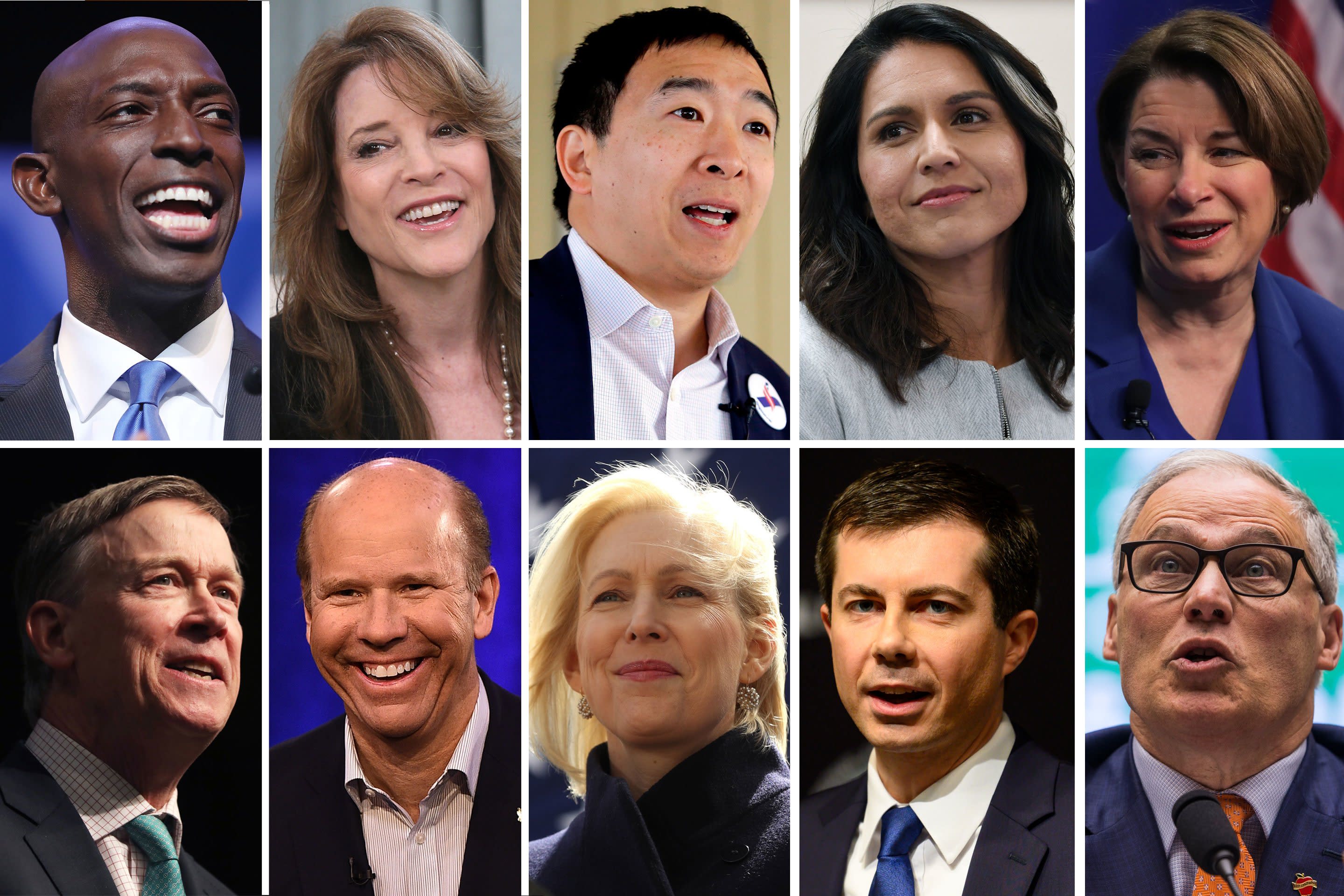Political Candidates and their Stances
The Democratic primary features a diverse field of candidates with a wide range of policy positions. These candidates come from various backgrounds and experiences, which shape their views on issues such as healthcare, education, and climate change.
Amidst the electoral battleground, the democratic primary emerged as a crucible where candidates’ visions and ideologies collided. As voters cast their ballots, they held the power to shape the course of the democratic primary , determining the party’s standard-bearer who would go on to challenge for the highest office in the land.
One of the key differences among the candidates is their approach to healthcare. Some candidates, such as Bernie Sanders and Elizabeth Warren, support a single-payer healthcare system, while others, such as Joe Biden and Pete Buttigieg, favor a more incremental approach that would expand access to affordable healthcare without eliminating private insurance.
The democratic primary has been a closely contested race, with several candidates vying for the nomination. Pennsylvania has emerged as a crucial swing state, and you’ve got a friend in Pennsylvania is a website dedicated to providing information and resources to voters in the state.
The site offers a wealth of information on the candidates, the issues, and the voting process. With its comprehensive coverage, you’ve got a friend in Pennsylvania is an invaluable resource for voters in the democratic primary.
Another major issue dividing the candidates is climate change. Some candidates, such as Sanders and Warren, have proposed ambitious plans to address climate change, while others, such as Biden and Buttigieg, have taken a more moderate approach.
The candidates’ backgrounds and experiences also play a role in shaping their views. For example, Sanders is a self-described democratic socialist who has long advocated for progressive policies, while Buttigieg is a former mayor of South Bend, Indiana, who emphasizes his experience in local government.
Key Issues and Debates

The Democratic primary is a battleground of ideas, with candidates vying to outmaneuver each other on a range of pressing issues. These issues, spanning from healthcare to climate change, deeply divide the candidates and will play a pivotal role in determining the primary outcome.
One of the most contentious issues is healthcare. Candidates like Bernie Sanders and Elizabeth Warren advocate for a single-payer system, arguing that it would provide universal coverage and reduce costs. On the other hand, moderates like Joe Biden and Amy Klobuchar favor more incremental reforms, such as expanding Medicaid and lowering prescription drug prices.
Climate Change
Climate change has emerged as another defining issue in the primary. Candidates like Sanders and Warren have made it a centerpiece of their campaigns, calling for bold action to reduce greenhouse gas emissions. Biden, while acknowledging the urgency of the issue, has taken a more cautious approach, emphasizing the need for a realistic and achievable plan.
Economic Inequality
Economic inequality is a third major issue that has divided the candidates. Progressives like Sanders and Warren propose sweeping reforms to address wealth disparities, such as raising taxes on the wealthy and expanding social programs. Moderates like Biden and Klobuchar, while recognizing the problem, offer more moderate solutions, such as increasing the minimum wage and investing in education.
The outcome of the Democratic primary will hinge on how candidates navigate these key issues and persuade voters that their positions align with the priorities of the American people.
Campaign Strategies and Tactics: Democratic Primary

In the Democratic primary, candidates are employing a variety of campaign strategies and tactics to appeal to voters and win the nomination.
Some candidates are focusing on grassroots organizing, holding rallies and town halls to connect with voters on a personal level. Others are relying on television and online advertising to reach a wider audience. Still others are using social media to engage with voters and build support.
The effectiveness of these strategies and tactics varies depending on the candidate and the specific race. However, all of the candidates are working hard to reach voters and win their support.
Grassroots Organizing, Democratic primary
Grassroots organizing is a key part of many Democratic campaigns. By holding rallies and town halls, candidates can connect with voters on a personal level and build relationships.
Grassroots organizing can also be used to identify and mobilize volunteers, who can help with tasks such as canvassing, phone banking, and voter registration.
Television and Online Advertising
Television and online advertising are still major components of most Democratic campaigns. These ads can be used to reach a wide audience and promote a candidate’s message.
However, television and online advertising can be expensive, and it is important for candidates to use these resources wisely.
Social Media
Social media is a powerful tool that can be used to reach voters and build support. Candidates can use social media to share their message, connect with voters, and mobilize volunteers.
Social media can also be used to track voter sentiment and identify key issues.
